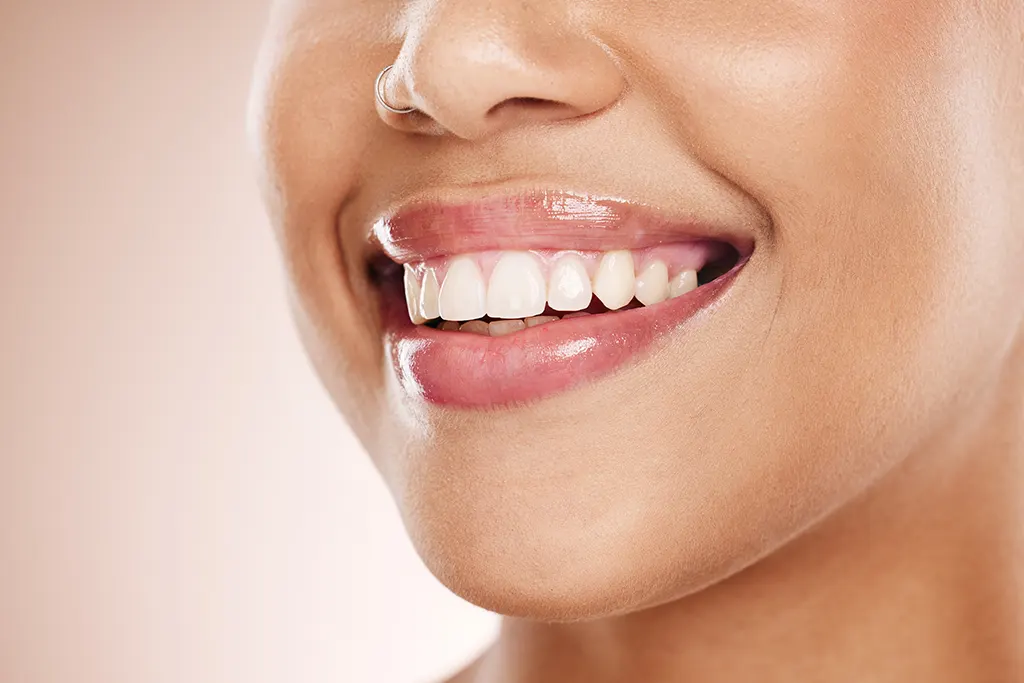If you’ve ever looked in the mirror and wished for a brighter smile, you’re not alone. Teeth whitening has become one of the most popular cosmetic dental treatments in Canada. But with so many whitening treatments out there, from whitening strips to bleaching gels, you might be wondering: Are teeth whitening safe? And does it actually work?
The short answer is yes, teeth whitening can be safe and effective when done properly. But there are some important things to understand before you try it yourself or book a whitening treatment at your dentist’s office.
Let’s take a closer look at how teeth whitening works, what your options are, and how to do it safely and effectively.
How Does Teeth Whitening Work?
Most teeth whitening products work by using a bleaching agent like hydrogen peroxide or carbamide peroxide. These ingredients break down surface stains on the enamel and deeper stains within the tooth. This process makes the teeth look whiter and brighter.
Whitening toothpaste, strips, gels, and professional bleaching treatments all use some form of these bleaching agents. The main difference is how strong they are and how they’re applied.
What Are the Most Common Whitening Options?
There are many teeth whitening products available today. Each comes with its own pros, cons, and levels of effectiveness.
1. Whitening Toothpaste
These can help remove surface stains over time. They don’t actually change the colour of your teeth, but can make them look cleaner. They’re safe for daily use, though not as dramatic as other whitening treatments.
2. Whitening Strips and Gels
These over-the-counter products use a low concentration of bleaching gel. Whitening strips are applied directly to your teeth, while gels are painted on. They can be effective for mild to moderate staining but may take a couple of weeks to show results.
3. Professional Whitening Treatments
Performed by your dentist, these treatments use stronger bleaching products and are carefully monitored to reduce the risk of side effects. You’ll often see noticeable results in just one session.
4. Custom Take-Home Trays
Your dentist can also provide whitening gel with custom trays for you to use at home. This method is more controlled than store-bought options and tends to be safer and more effective in the long term.

Is Teeth Whitening Safe?
When done properly, yes, teeth whitening is safe. According to the Canadian Dental Association (CDA), whitening treatments that use approved bleaching agents are safe for most people. However, that doesn’t mean it’s risk-free.
The most common side effect of teeth whitening is tooth sensitivity. This can happen when the bleaching agent penetrates the enamel and irritates the nerve of the tooth. The good news is, sensitivity usually goes away after a few days. Using a toothpaste for sensitive teeth before and after whitening can help reduce discomfort.
Another possible side effect is mild gum irritation, especially if the bleaching gel comes into contact with your gums. Again, this is usually temporary.
It’s important to note that whitening is not recommended for children, pregnant women, or people with gum disease or untreated dental issues.
Will It Damage Your Teeth?
One common concern is whether teeth whiteners can damage your teeth. When used as directed, whitening products do not damage your teeth. However, overuse or incorrect use, such as applying too often or using extra-strength bleaching products without supervision, can wear down enamel over time.
That’s why we recommend consulting with your dentist before starting any whitening treatment. A dental professional can help you choose the right method based on your teeth, your goals, and your oral health.
How to Whiten Your Teeth Safely and Effectively
Here are some tips to make sure you’re whitening your teeth safely:
- Talk to your dentist first, especially if you have fillings, crowns, or dental sensitivity.
- Use only ADA- or CDA-approved whitening products.
- Follow the directions on whitening strips, gels, and other treatments.
- Avoid eating or drinking stain-causing foods (like coffee or red wine) immediately after whitening.
- Don’t overuse whitening toothpaste or bleaching gels.
- Stick to a consistent routine; don’t rush the process.
Are There Long-Term Effects?
When used properly, there are no serious long-term side effects to teeth whitening. However, repeated or aggressive use can lead to increased sensitivity or enamel wear. Always follow your dentist’s recommendations and avoid DIY hacks you see online.
Is Whitening Worth It?
If you’re looking for a brighter smile, whitening can be a great option. It won’t change your life, but it can boost your confidence and help you feel more comfortable in social and professional situations.
The key is to choose the right whitening treatment for your needs and use it safely. Whether you go with over-the-counter teeth whitening products or professional whitening treatments, knowing what to expect helps you get better results.
Final Thoughts
So, is teeth whitening safe? Yes, as long as you follow the directions, talk to your dentist, and avoid overdoing it.
At Murrayville Dental, we’re here to help you explore your whitening options and find what works best for your smile. If you’re curious about teeth whitening or want to book a consultation, get in touch today.

